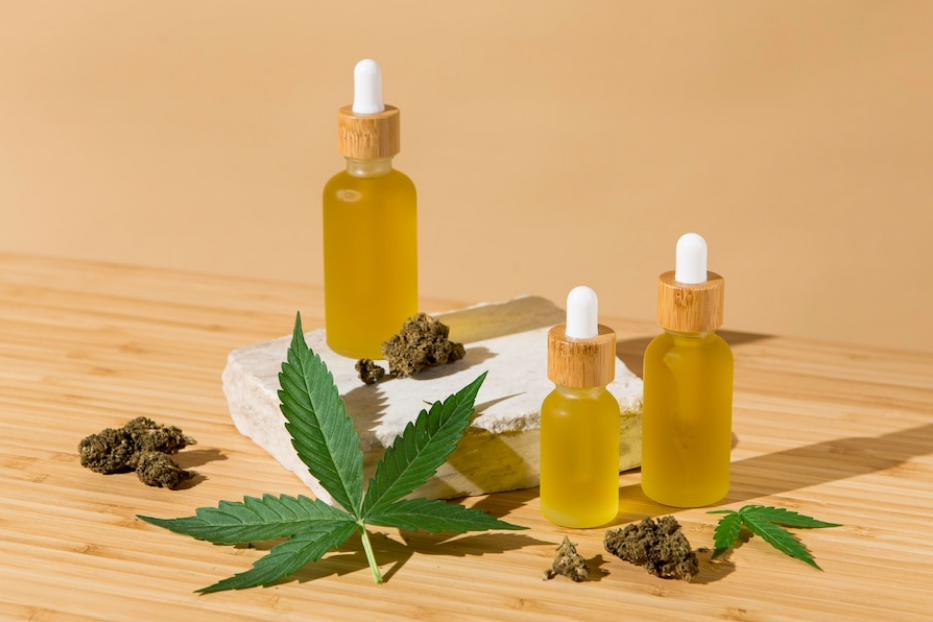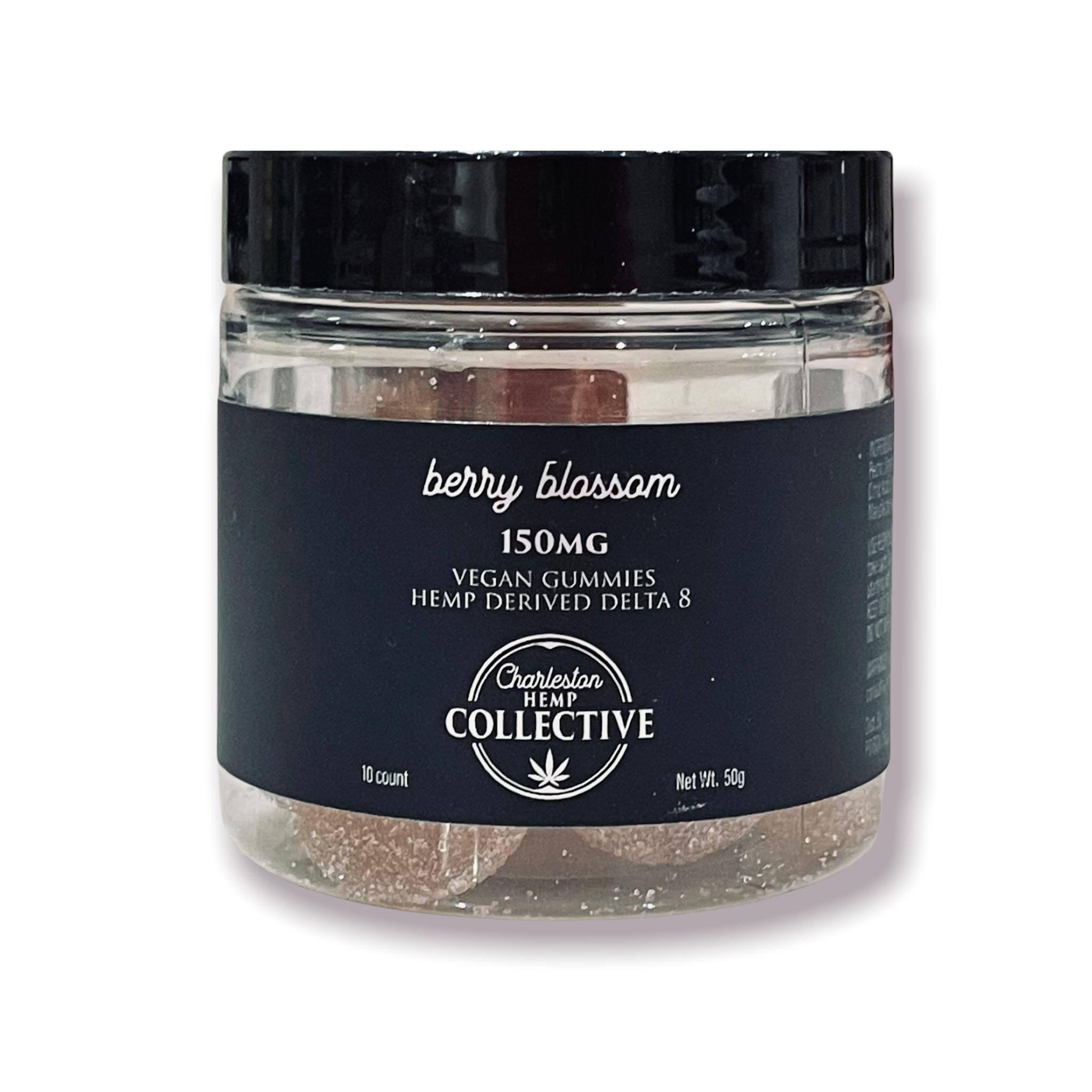
CBD tinctures consist of concentrated drops from cannabis oil that interact with your body's endogenous, or endocannabinoid, system. This complex system is a cell-signaling system first discovered in the 1990s, but it's still not well understood. It works by activating synergistic effect of the cannabinoid and enzyme receptors in cells. Anandamide is one such cannabinoids.
Concentrated
CBD tinctures from hemp flowers are potent herbal extracts. The tincture process is the distillation and blending of the plant extract with water. While some people may use these two terms interchangeably, they are in fact very different. The manufacturing process used to make CBD tinctures and the amount of CBD they contain are the key differences. CBD tinctures have a higher potency than oils.

Fast-acting
It is possible to make a tincture using dried marijuana. This is an easy way to reap the benefits of cannabis without having to visit a dispensary. The process involves heating the flower to decarboxylate the tetrahydrocannabinolic acid. THC can be found in the resulting cannabis tincture. It is a concentrated version of cannabis used to produce edibles.
Made in USA
Good quality CBD tinctures are made in the USA. Tranquil Earth makes tinctures from organic hemp. They also use MCT oil and flavoring extracts. These products are made in America and third-party tested at ISO-certified labs. Every bottle comes with a Certificate Of Analysis, which shows the CBD content. Cannabidiol (or CBD) is a chemical compound found within the cannabis plant Cannabis sativa. CBD differs from THC, which is the psychoactive ingredient in marijuana, and is legal in the U.S. since the 2018 Farm Bill.
MCT oil
MCT oil can be made from coconut oil or palm kernel oils. MCT oil's popularity as a carrier oils for CBD is growing for many reasons. It is a clear and odorless oil which is often added to coffee or other products. There are three types of MCT oils: caproic, caprylic and lauric acid.
Taking in small doses
Start with a low dosage and increase the amount of CBD tinctures as you need it to treat the problem. Like any medication, it is crucial to observe how you experience each product and the dosage methods. While this approach may be the most effective and quickest way to find relief, it should be heeded by first-timers to prevent potential side effects.

Quality checked
It is important that you know the ingredients used to make CBD tinctures. Some tinctures may contain as high as 10 percent THC. This can be dangerous for your health. If you're looking for a high-quality CBD tincture, try to avoid flavored products. If possible, choose one that contains minimal THC. This way, you'll know that you're getting the highest-quality CBD tincture possible.
FAQ
What does the future hold for the CBD Industry?
The future is bright for the CBD industry. It is clear why so many people are getting on board with this industry. With CBD products accounting for over $1Billion in global consumer spending, it is easy to see how the market is growing exponentially.
Statista predicts that global sales of cannabidiol in 2019 will reach $22.4 million. That's almost 200% more than in 2018!
It is also expected that the CBD market will grow at a compound annual growth of 22.5%. That would translate to approximately $6.8 million in revenue by 2020.
This is great news both for those looking to enter the market as well as existing companies. But, it is important to remember that the CBD industry is still in its infancy. There will be many challenges.
Is the CBD market saturated or not?
CBD industry has a growing rate of 25% annually. This growth is expected not to stop for at least five more years. In fact, the industry is projected to grow from $2 billion today to $5 billion by 2020.
Two companies dominate the CBD market: GW Pharmaceuticals (Canndoc Ltd) and Canndoc Ltd. Both are focused on developing pharmaceutical-grade products. They have not been very effective so far. Both are struggling to get traction on market.
Cannabidiol (CBD) is an extract of cannabis that contains less than 0.3% THC. It does not have any psychoactive properties. It can be used to treat epilepsy, and other medical conditions. It can also be used as a dietary supplement.
There are many types of CBD products. Some CBD products can be made with whole plant extracts and others, such as CBD.
These products all have one thing in common: they contain low amounts of THC.
These products are legal under US federal law. But, you still have to adhere to local laws when selling CBD products. Always check your state's laws regarding CBD products.
Some states also make CBD products illegal. These are California, Colorado. Florida. Mississippi. Missouri. New York. North Carolina. Ohio. Oklahoma. Oregon. Rhode Island. South Dakota. Texas. Utah. Virginia. Washington.
CBD products shouldn't be used if you live in any of these states.
Which states are the biggest consumers of CBD?
California, Colorado and Oregon are three of the most popular states. These states have large numbers, high incomes, and low rates of unemployment. They also have higher concentrations of hemp farms than other states.
California is leading the way, as its economy is heavily dependent upon agriculture. It produces the majority of the nation’s fruits and veggies. This is because cannabis is from the same source as hemp.
Oregon and Colorado are close behind, as they both grow marijuana for medical purposes. However, unlike California, these two states do not allow the recreational use of marijuana.
Other high-ranking states include Washington, New York and Florida.
Is CBD a good company to invest?
As people learn more about the benefits of hemp-based products, the market for them continues to grow. There could be $1B worth of hemp products on the shelves by 2022.
The market is expected to continue growing at over 20% per year until 2020 when it reaches $2.5billion.
Hemp oil is already used in many beauty and health care products such as lotions, shampoos, lip balms, moisturizers, body butter, and skin creams.
There are many companies that produce CBD-infused foods, snacks, pet food and dog treats.
CBD is currently legal in all 50 states, although this may change soon. Businesses will find it easier to legally operate legally as more research is done on CBD's potential uses.
With all these factors in mind it is clear that CBD investing can prove to be a lucrative venture.
Where can you buy CBD products
You can purchase CBD online or at local retail stores. Online retailers tend to offer better deals. Many websites will sell CBD products that contain industrial hemp. It contains less than 0.3% of THC.
Look for local businesses that sell CBD products.
Many states now have laws allowing consumers to buy CBD products without a prescription. You may be able buy CBD products from your local pharmacy if you are a resident of one of these states.
CBD products can be delivered directly to your front door.
What amount of CBD do I require?
Dosing depends on what type of product you're buying.
CBD oils come in a variety of strengths, ranging from 100mg-1000mg per bottle.
Some CBD products come in specific doses such as 25mg 50mg and 75mg.
Charlotte's Web produces CBD products with high levels of CBD and other substances.
If you're unsure whether or not CBD will work for you, start with a low dose.
You can always go higher later.
What conditions are treated by CBD?
To have any treatment work, it must first affect the person's overall health. If you are using cannabis oil as a medicine, then it must be prescribed by a doctor. It is also illegal to use cannabis products if you do not have a prescription from a medical professional.
A prescription is not necessary if cannabis oil is being used as part of a healthy lifestyle. You should talk to your doctor to confirm that cannabis oil is safe to be taken.
Cannabis oils are made from either whole plant extracts or isolated compounds called cannabinoids (THC and CBN). They are rich in cannabinoids (CBD), tetrahydrocannabinol(THC) and cannabinols (CBN).
These components interact and create effects that include pain relief, stress relief, and antiinflammatory and antioxidant properties.
Statistics
- A recent systematic review of human trials also reported that individuals with epilepsy receiving CBD (5–20 mg·kg−1·day−1) were more likely to experience decreased appetite than those receiving placebo (i.e., ~20 vs. 5% of patients) (ncbi.nlm.nih.gov)
- As a substance that was federally illegal before the passage of the 2018 Farm Bill, hemp-derived cannabinoids with no more than 0.3% THC still face a regulatory grey area. (forbes.com)
- A recent study [161] also found that in vitro CBD treatment (i.e., ≤ 2 h exposure to 10 μM) induced ~40% vasorelaxation in isolated (pre-constricted) (ncbi.nlm.nih.gov)
- however, one study also found that these effects were virtually abolished when the original media (a nutrient broth agar) was replaced with one containing 5% blood (increasing the minimum concentration to ~160 μM CBD) [179]. (ncbi.nlm.nih.gov)
- HR −16 mmHg; 95% CI −26, −6; I2 = 92%) (ncbi.nlm.nih.gov)
External Links
How To
What are the major issues facing the CBD industry in general?
The market for CBD is growing at an astonishing rate. Businesses looking to get into this market face many obstacles. These include lack of consumer awareness and high costs of entry, limited capital access, and regulatory uncertainty.
Many people don't know much about CBD or how it works. This means that consumers are unable make informed decisions about purchasing CBD products.
Most CBD companies rely heavily upon word-of mouth marketing. This is expensive because it requires paying for advertising and hiring staff to promote their brand.
High production costs are another problem facing new entrants in the CBD industry. The raw materials needed to create CBD products are quite expensive. To make CBD oil, hemp must be grown in certain climates and soil types.
For CBD oil to be produced, you need to plant enough hemp. This costs about $1,000 an acre. Many small farmers are unable or unwilling to invest in this product.
The lack of capital access is another obstacle new entrants to the CBD market face. Many people who want to start a business are discouraged by banks due to the stigma associated with the industry.
Last but not least, there is regulatory uncertainty regarding the sale and distribution of CBD products. There are currently not clear guidelines as to how CBD products should marketing.
While some states have passed legislation restricting CBD products' sale, it has not been adopted as a national policy.
Only Nevada, Maine, and Nevada have legalized recreational pot.
Massachusetts and Michigan are however considering similar measures.
These changes could result in increased competition between CBD manufacturer.
These factors have led many entrepreneurs to choose to work remotely rather than starting a physical business.